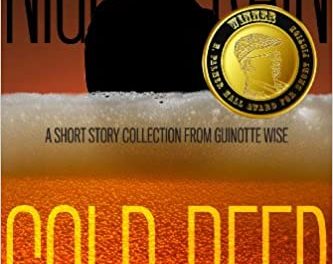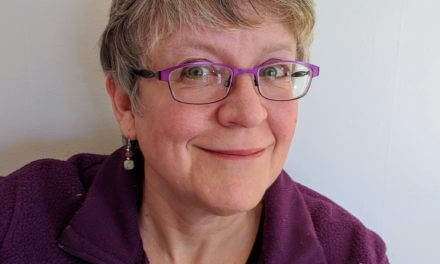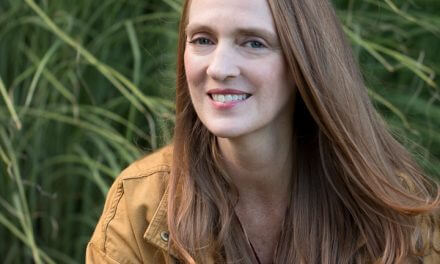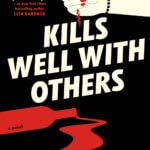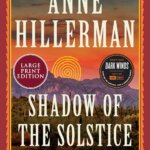My guest today is Sherri Leimkuhler, author of What’s Left Untold, a book I can’t say too much about without divulging its premise and causing major spoilers. Sherri has written professionally for more than twenty years but is a Jill of many trades, with experience in sales, marketing, public relations, event planning, aviation, and yoga instruction. Her health-and-fitness column, “For the Fun of Fit,” appears bi-weekly in the Carroll County Times. An ultra-distance triathlete and two-time Ironman finisher, Sherri lives in Maryland with her husband, three daughters, and two Labrador retrievers.
SS: Welcome, Sherri. Let’s get right down to the interview. Let me say, Sherri, I thought you chose an interesting topic to write about. But you did it with compassion and deftly blend fact with the social, religious, and cultural attitudes, legal ramifications, and sanctions against what many deem a sin. Readers can find my review of What’s Left Untold here.
Could you say something about your relationship to your fictional characters? How autobiographical do you think your fiction is?
SL: A lot of readers have asked if my book is about me or anyone I know. Some have even asked if it is me on the cover, lol! I believe art imitates life, and that every writer brings a little of herself and her experiences to her work. Though most of the characters in What’s Left Untold are composites of multiple people or personalities I have known or encountered throughout my life, the story itself is completely fictional and not at all autobiographical.
SS: What are you working on at the moment?
SL: My second book—currently titled The Executive Club—is about a woman who quits her job and finds herself in dire financial straits. When a former client dangles the prospect of discreet, lucrative work, she finds the temptation hard to resist, though venturing into this underground enterprise threatens the relationships that are most important to her, and forces her to question the strength and integrity of her moral compass.
SS: At what point did you come up with the title? Did your publisher change it?
SL: Part of What’s Left Untold takes place in the eighties, and there is a song from that decade with the lyric “Do you keep secret left untold.” I heard the song on the radio while I was writing the book, and it hit me that this was exactly what my book was about: the secrets we keep, the things left untold. I knew in that moment I had my title!
Like a Three’s Company episode, the secrets in What’s Left Untold create chaos and unimaginable consequences that might have been avoided if the characters had only been honest and communicated openly. What’s Left Untold has been the book’s title since the beginning, and my publisher loved it, too.
SS: Do you believe you write the kind of book you’d want to read?
SL: Absolutely. In fact, it was one of my primary goals when writing What’s Left Untold: to write the kind of book I would enjoy reading.
SS: Khaled Hosseini (The Kite Runner) feels he discovers a story rather than creates it. Are you a plotter? Or do let the novel develop organically?
SL: First, I have to note that The Kite Runner is one of my all-time favorite books! I stumbled upon the inspiration for What’s Left Untold by accident. (I found a trunk of childhood memorabilia that contained a box of old letters. One of the letters had a mysterious postscript: I need to see you—I have something important to tell you. Which made me wonder: what is something you could learn decades after the fact that could still have a major impact on your life?”) From the moment the inspiration hit, the story basically wrote itself and so, for better or worse, I was an absolute pantser throughout the process. The story definitely developed organically and took on a life of its own—especially the unexpected, controversial ending.
SS: The Kite Runner’s one of my all-time faves, too, Sherri. I find it particularly poignant as I was in Afghanistan at the time in which the book’s early chapters are set, and I remember Kabul as Hosseini writes about it: a vibrant, exciting place. In your book, if you stray from a chronological time-frame, did you write the book in the order in which it appears on the page, or did you write it in a chronological order and later rearrange
SL: The original draft of What’s Left Untold was written chronologically and was a finalist in the Women’s Fiction Writers Association’s Rising Star Contest. A perk of being a finalist was getting agent feedback, and one of agents felt strongly that, as a women’s fiction novel, the book had too much focus in the beginning on the main character’s teen years. Based on this feedback, I spent a year rearranging the novel into a flashback format which, ultimately, was a positive change and I believe the book is better for it.
SS: Where is your book set? How did you decide on the setting? When is it set?
SL: Harking back to the sage advice that writers should “write what they know,” What’s Left Untold is primarily set in my home state of Maryland. However, the characters also sojourn to Sedona, Arizona; Gulf Shores, Alabama; Mobile Alabama; and Athens, Ohio.
The book spans thirty years of the protagonist’s life (from age fifteen to forty-five) and takes place primarily between 2006–2016, with flashbacks to 1986–1989, which is also when I was in high school.
SS: Mark Rubinstein (Beyond Bedlam’s Door: True Tales from the Couch and Courtroom) says “Without chaos, there’s very little story to tell.” What’s the central conflict in your story? What’s the source of chaos?
SL: What’s Left Untold is about a woman, Anna, who reunites with her estranged best friend, Lia, and uncovers a devastating secret.
The central conflict of the story is Lia’s sudden and unexplained departure from Anna’s life the year after they graduated from high school. Anna is deeply hurt and confused by Lia’s abandonment, which has left her with a general distrust of women and a lack of confidence in female friendships. As their twenty year high school reunion approaches, Anna is anxious about the possibility of seeing Lia again, but also recognizes it as an opportunity for closure and forgiveness.
The chaos centers around Anna uncovering Lia’s secret and the unintended and heartbreaking consequences it sets in motion.
SS: Do you know the ending to your story when you put pen to paper? If so, have you ever changed the ending after you started to write?

I’d recently read the psychological thriller, The Wife Between Us (another all-time favorite book!) by Greer Hendricks and Sarah Pekkanen, and I was delighted by the surprise twist I didn’t see coming. I like books that take me by surprise, and I wanted to deliver a similar “I didn’t see that coming” element to my own book. As a result, unexpected, controversial ending of What’s Left Untold breaks with traditional expectations for women’s fiction and has sparked lively conversation and debate among readers, making it an excellent book club pick.
SS: Which of your characters surprised you the most for the decisions they made?
SL: I am surprised by the controversial decision Anna, Lia and Jack make. I don’t necessarily agree with it, and I don’t think I would make the same decision. But human beings are flawed; we don’t always make the correct or logical choices. And, as we know, hindsight is 20/20. It’s incredibly easy to judge another person’s decisions when you haven’t walked in their shoes. What’s Left Untold has readers asking themselves, “What would I have done?” and keeps them thinking about the characters’ decisions and the resulting consequences well after the story has ended.
I’m also surprised by some of Faith’s decisions and the secrets she chose to keep.
SS: What advice would you give aspiring writers?
SL: I wrote an article on this subject for Women Writers, Women’s Books titled “Seven Tips for Writing Success and Sanity.” Here is the link to the full article: https://booksbywomen.org/from-inspiration-to-publication-lessons-along-the-way/
But, in a nutshell, these are my seven tips: write often, read a lot, learn as much as you can, connect with fellow authors, write the book you want to write, manage expectations, and never give up!
SS: Do you believe in real-life happily-ever-afters? Does women’s fiction have to have a HEA?
SL: Not necessarily. I believe that life is often a product of circumstances and choices. In other words, happiness is part luck, and part effort and intention. Happily-ever-after is definitely achievable but it’s also not guaranteed. So much of what happens in life is out of our control. But expectation also plays a part, and happiness is relative. Buddha is quoted as saying, “Happiness will never come to those who fail to appreciate what they already have.”
So, no, I do not believe that women’s fiction has to have a “happily-ever-after” ending. I might expect this more of Romance or Chick Lit but, to me, women’s fiction focuses on the journey and, unfortunately, not every journey ends up neatly wrapped and tied with a perfect bow. Life is beautiful; but life is messy.
SS: Another genre that you would love to write:
SL: Historical Fiction
SS: Book you’re currently reading:
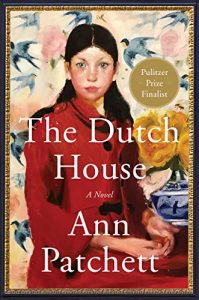
********************

Amazon | B&N | Bookshop | Kobo | Walmart | GooglePlay | Red Adept Publishing
********************
A brief excerpt from What’s Left Untold:
“You say things like that a lot, you know,” I blurted, Lia’s comments at the spa, and on other occasions, still gnawing at me.
“Like what?” Lia asked, polishing off her burger and starting in on our basket of kale chips.
“Like, alluding to having done something or experienced something that you clearly have not. At least not to my knowledge.”
Lia absently waved her hand in the air and sipped her organic green tea. The gesture rubbed me the wrong way, like she was blowing me off. Like I had no idea what I was talking about. I straightened my back and squared my shoulders, determined not to let her off the hook this time.
“I’m not making this up,” I pressed. “And, the more I think about it, the more I realize how much I still don’t know about you, about your life. I’m happy that we’ve reconnected, and I treasure our friendship, but it’s just . . . this feeling I have sometimes when I’m with you, like you’re hiding something from me.”
Lia’s cold indifference pulsed across the table like an outstretched arm, pressing against my chest, holding me at bay. Then a sudden longing for Faith surged warm and hot through my body, and Faith’s familiar, comforting presence washed over me, taking my breath away. It was as if she was there with me, guiding me, protecting me. Warning me. Suffusing me with strength. Then the feeling was gone, flowing away from my body like an ebbing tide.
“I won’t go there again,” I said, my voice hard, my hands shaking.
“Go where?” Lia asked, baffled.
“I won’t tolerate you playing games with me. I’ve been completely honest with you. I’ve let you into my life again, into my heart again, but I’m not sure I trust you. I feel like you’re keeping me at arm’s length, which is ironic,” I mused with a snort. “I thought it would be me keeping you at a distance. But it doesn’t work that way, you know? Our friendship won’t work that way.”
Lia dabbed the corners of her mouth with her napkin. “Sometimes it’s better that way, Anna,” she postulated, refusing to meet my eyes.
And I knew I’d touched on something real. Fleeting and delicate but real. I wasn’t imagining it. My words had reached out and grasped the edge of truth and the realization emboldened me.
“What aren’t you telling me, Lia? What are you hiding? Sometimes the things you say don’t make sense. You said you went to Miami to help your aunt, but I still don’t understand why you couldn’t tell anyone about it. You also said you wanted to leave the past behind and start a new life. But if that’s true, why did you move back to Maryland? And why, after all these years, did you decide to reach out to me again? It just doesn’t add up.”
Lia fidgeted with her napkin. Her pained expression was a window to her internal struggle. When she finally glanced up, I could see the storm of indecision had passed. The clouds of doubt had vanished, and her expression clear and unguarded. I peered into her green eyes, still beautiful and bright despite the fine spray of crow’s feet etched at the corners, and I knew the veil had been lifted. I braced myself for the truth.
********************
You can follow Sherri here on social media:
Website | Instagram | Facebook | Twitter | BookBub | Goodreads
********************
This post contains Amazon Affiliate links. As an Amazon Associate, I earn a small amount from qualifying purchases.

